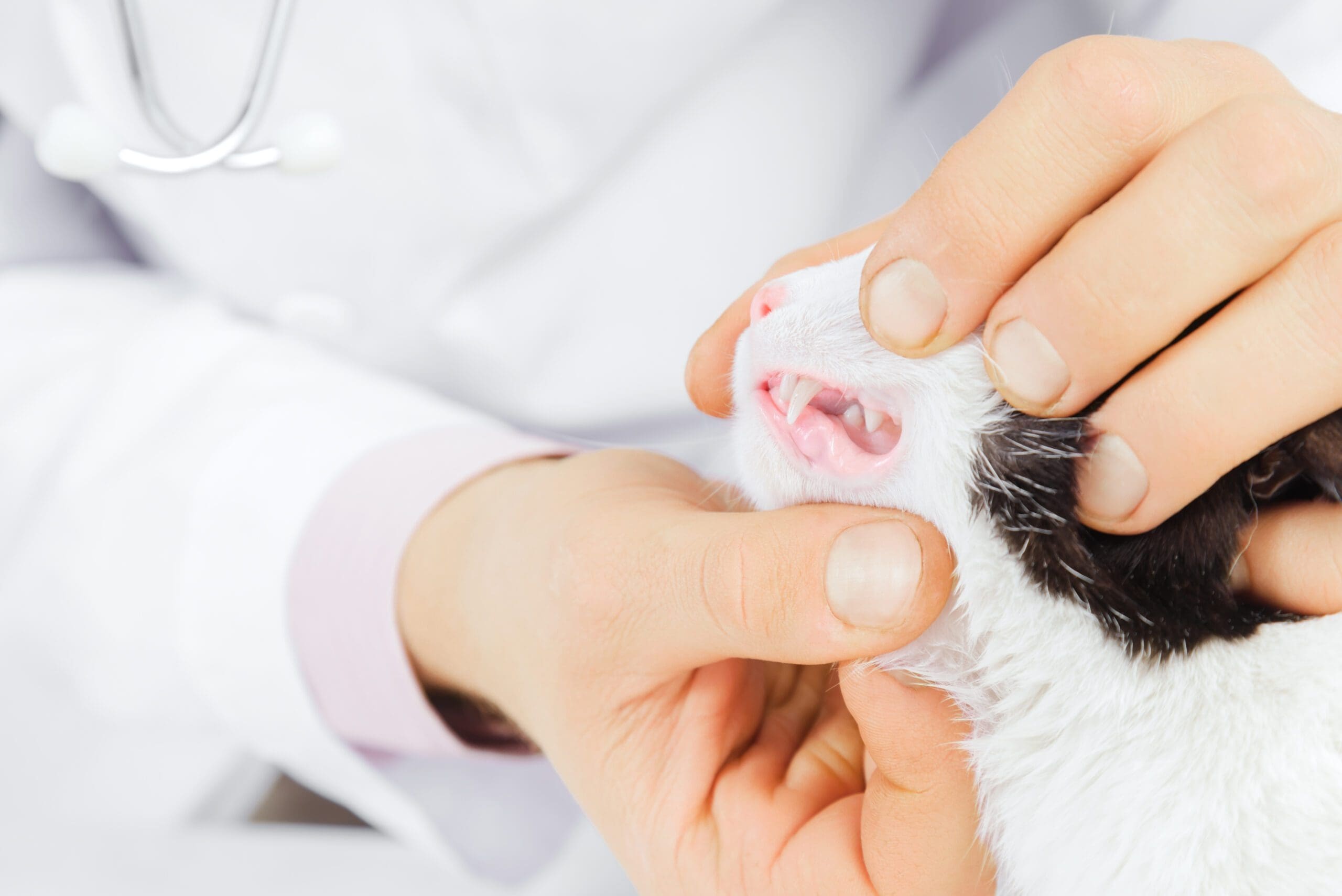Last Updated on January 31, 2023 by admin
Did you know that 67% of cats will experience dental issues before they are 3 years old?
These causes for tooth loss and dental problems range from injury, periodontal disease, stomatitis, and tooth resorption (body breaking down the tooth and re-absorbing it aka feline odontoclastic resorptive lesions – FORL). These problems will become more prevalent as your cats get older.
Prevention is the best medicine when it comes to your cat’s dental health. Unfortunately, many cats simply refuse to let you brush their teeth so it’s hard to make sure your cat’s teeth are brushed and healthy without seeking professional help from a qualified veterinarian. As your cat gets older dental problems may lead to your cat losing its teeth. Once your cat’s teeth become diseased they may need to be removed for the long-term health of your cat.
Most Cats Can Continue Eating their Usual Food
The good news is even cats with no teeth can go on eating their usual food without problem. Cat teeth are not really suited for grinding food like humans to begin with. Cats mainly use their teeth for grasping and shearing due to being predators and carnivores. In fact they will mostly swallow their food with minimal chewing.
That’s why it’s more important to fix any dental issues your cat may have rather than trying to keep all their teeth. Diseased teeth will be a constant source of discomfort, pain, and inflammation if left untreated.
Adjusting Food
If your cat does struggle to eat dry food without teeth you can soak their usual fare with hot water or hot broth for a few minutes before serving. Most canned food are thinner with nutrients than dry food so may require adjustments for your cat to get enough calories and nutrients.
Regular Professional Care
Even if you are unable to regularly brush your cat’s teeth, it is important to have regular dental checkups and get professional dental cleaning. Only a professional veterinarian can effectively diagnose dental disease and offer medical treatment. If any dental issues are not treated the problem will only get worse and lead to other health problems that impact your cat’s quality of life and lifespan. If the optimal checkup schedule is out of your budget you should still try to schedule checkups even if they are far apart.
Injuries
If your cat plays around with other cats or pets, rough play can lead to tooth damage or loss. Also if your cat likes to chew on furniture or you give them hard toys, this can also cause dental problems.
Chew Toys
Cat parents should always exercise caution when choosing pet toys and avoid anything with hard surfaces including stiff silicone or other synthetic material. Repeatedly chewing on tough material will wear down the teeth even in the best of conditions. Even dogs can fracture their teeth by chewing on bones. Toys designed for dogs are not suitable for cats because cats have different dental structure. Chew toys designed for cats are softer and either made with fabric or food grade rubber and silicone. Fabric chew toys need to be replaced regularly to prevent germs and bacteria from building up. Rubber and silicone toys should be washed with soap and hot water regularly.
Regular Dental Care is the Best Prevention
Like humans as cats age it will affect their dental health. The best way to ensure cats keep their teeth is through prevention and early care. Unfortunately, most cats resist any kind of brushing. So you might have to spend some time working up to a proper dental hygiene routine.
One alternative is to use brushing gloves, dental cleaning strips, and dental gel to keep your cat’s teeth cleaned without actual brushing. Also if you predominantly feed your cat wet food, food particles can get in the gums or stick to the dental surface, causing cavities. Also if you give your cat lots of treats in between meals this can also create problems down the line.
Unfortunately, you need your cat’s cooperation to maintain good dental hygiene but at least your cat will still be able to live a normal life without teeth and still eat mostly the same foods as long as you treat the root cause of what caused their tooth loss.
